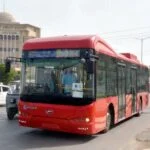On Friday, World Cup organisers will announce a U-turn: Fans won’t be able to purchase alcoholic beer at Qatar’s stadiums.
The expected announcement comes two days before the World Cup’s scheduled to start on Sunday. This World Cup will be the first to be held in a conservative Muslim country with strict alcohol consumption laws.
Because he was speaking before an announcement, the source spoke on the condition of anonymity. “A larger number of fans are attending from across the Middle East and South Asia, where alcohol doesn’t play as much of a role in the culture,” the source said.
The assumption was that having alcohol around would make things less enjoyable for many fans.
Three hours before and one hour after each game, alcoholic beer could be purchased inside the ticketed perimeter surrounding each of the eight stadiums thanks to Budweiser, a major World Cup sponsor with exclusive rights to sell beer at the tournament.
However, the policy change is the result of long-term negotiations between FIFA president Gianni Infantino, Budweiser, and executives from Qatar’s Supreme Committee for Delivery and Legacy (SC), which is organising the World Cup, according to the source.
The source also said that alcohol would still be served in the stadium’s hospitality locations.
Since Qatar won the right to host in 2010, concerns have been raised about the role that alcohol would play at this year’s World Cup. Although Qatar is not a “dry” state like its neighbour Saudi Arabia, it is still against the law to drink in public places there.
Even from the duty-free area of the airport, visitors cannot bring alcohol into Qatar, and the majority cannot purchase it from the only liquor store in the country.
Some hotels have bars where you can purchase alcohol; a half-litre of beer costs about $15 there. According to the source, Budweiser will continue to sell alcoholic beer at the main FIFA Fan Fest in the heart of Doha, where a half pint costs about $14.
Some other fan zones will also sell alcohol, while others will not. “Fans can choose their destination without feeling awkward. This was previously not the case in stadiums,” according to the source.












